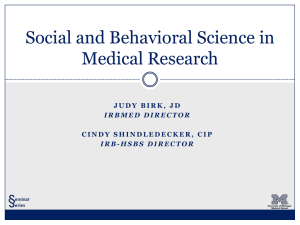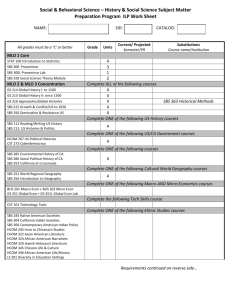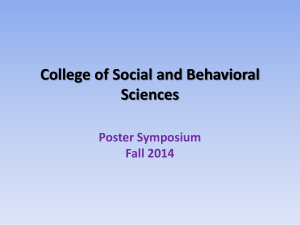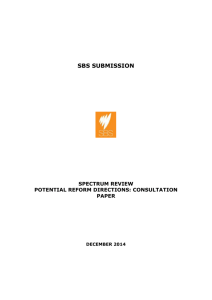Preresection Obesity Increases the Risk of Hepatobiliary
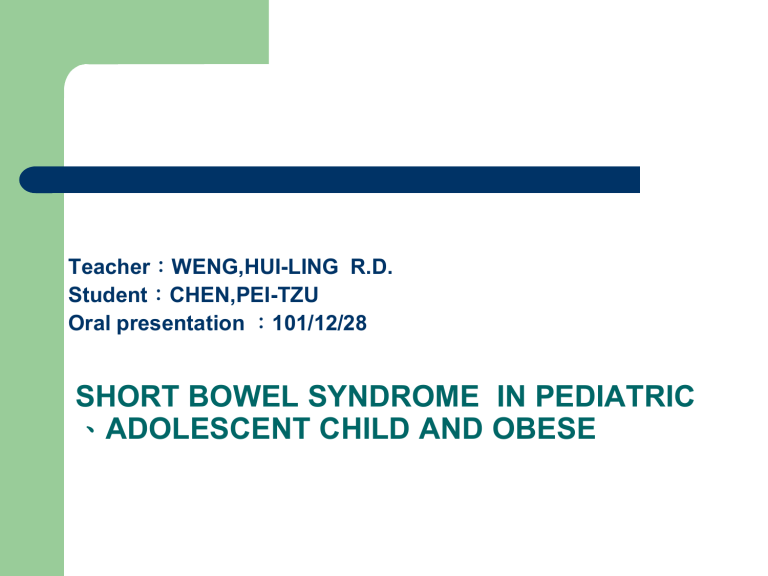
Teacher : WENG,HUI-LING R.D.
Student : CHEN,PEI-TZU
Oral presentation : 101/12/28
SHORT BOWEL SYNDROME IN PEDIATRIC
、 ADOLESCENT CHILD AND OBESE
Cholesterol metabolism in pediatric short bowel syndrome after weaning off parenteral nutrition
2
Digestive and liver Disease 42 (2010) 554-559
Introduction
The causes of intestinal failure in children may be classified into short bowel syndrome (SBS) , motility disorders and other rare diseases associated with severe malabsorption.
Cholesterol is an essential constituent of human cell membranes, a precursor of steroid hormones, and bile acids contributing to neural myelinization and brain development.
biliary bile acids into the lymphatic circulation entrance rate of dietary portal flow cholesterol homeostasis non-cholesterol sterols biliary cholesterol
3
Aim
There are no previous studies on cholesterol metabolism in children with intestinal failure,this aim is to evaluate cholesterol metabolism in short bowel syndrome (SBS) .
4
Methods
A total of 12 patients with intestinal failure due to SBS for various etiologies and 6 years old (n = 80) and 11 years old (n = 79) healthy Finnish children as control, performed a cross-sectional study.
5
Laboratory analyses :
1.
Serum cholesterol and noncholesterol sterols, were measured from nonsaponifiable material by gas –liquid chromatography (GLC)
2.
Serum alanine animotransferase
(ALT), glutamyl transferase, bilirubin, protrombin time, factor V, prealbumin, and vitamins B12, A and E were determined by routine hospital methods.
3.
Cholesterol and TG 、 evels and HDL apolipoprotein-B were determined by commercial kits
4. Bile acid and xylose absorption were determined only when considered clinically indicated.
Statistical analyses : Interquartilerange
(IQR) 、 Mann –Whitney’s U-test 、
Pearson’s correlation test 、 Spearman rank correlation test
39%
54%
78%
26%
Results
Results
7
Results
Inversely associated with the length of the remaining ileum
8
Conclusion
After weaning off PN, children with SBS continue to have marked intestinal malabsorption of bile acids and moderate cholesterol malabsorption resulting in decreased serum cholesterol despite amarked compensatory increase in cholesterol synthesis . The compensatory increase in cholesterol synthesis was more pronounced among those without any remaining ileum and it increased with advancing age.
9
Preresection Obesity Increases the
Risk of Hepatobiliary Complications in
Short Bowel Syndrome
Nutritions 2012 , 4, 1358-1366; doi : 10.3390/nu4101358
11
Introduction
Obesity is a low grade systemic inflammatory condition that is frequently associated with insulin resistance, hyperinsulinemia, hypertension, hyperlipidemia and coronary artery disease.
Since obese patients who develop short bowel syndrome (SBS) remain obese, they may continue to be at risk for obesity related liver disease . We hypothesized that morbidly obese individuals developing SBS would be at increased risk for developing hepatobiliary complications, especially if receiving parenteral nutrition (PN) .
methods
79 adult patients with SBS evaluated at our center between
1990 and 2008. Fitty-three patients with initial body mass index (BMI) < 35 were controls. Twenty-six patients with initial BMI > 35 were the obese group.
Follow up ranged from 12 to 220 months, with mean follow up of 50 months for controls and 56 months for obese SBS patients. Statistical comparisons were made utilizing analysis of variance and chi square tests, as appropriate, with p < 0.05 signifying significance. This study was approved by the UNMC Institutional Review Board.
12
Result
13
沒有顯著差異
Result
14
皆無顯著差異
Result
15
Result
16
Result
17
Result
18
Discussion
Obese patients have a higher incidence of pre-existing hepatobiliary disease . As noted previously, obese SBS patients were more likely to develop biliary tract disease preoperatively.
They were significantly more likely to develop cholelithiasis and cholecystitis post resection as well.
Obese SBS patients also had a higher incidence of preexisting fatty liver . However, the frequency of radiologic fatty liver was similar to nonobese patients after developing SBS. This is an interesting observation that suggests that despite maintaining a higher BMI the obese patients have a reduced tendency to develop hepatic steatosis after developing SBS.
19
Conclusion
obesity is an important factor in the outcome of SBS. Obese patients maintain a higher
BMI and are less likely to require long term
PN than non-obese individuals . The present study suggests that obese patients developing SBS are at increased risk for hepatobiliary complications, especially if receiving PN.
20
The adolescent child with short bowel syndrome:new onset of failure to thrive and need for increased nutritional supplementation
Journal of Pediatric Surgery (2012) 45, 1280-1286
Introduction
Short bowel syndrome (SBS) is a condition in which patients do not have sufficient length of small bowel,resulting in malabsorption of fluids , electrolytes and nutrients .Treatment for this condition most commonly involves some form of nutritional supplementation (NS)such as parenteral nutrition (PN) or tube feedings (TF).
Adolescence is a time of significant physical growth, trailing only early childhood in growth rate. some patients who were previously weaned off of NS, or well maintained nutritionally, demonstrated failure to thrive and required the re-initiation of
NS in adolescence.
22
Aim
To identify the nutritional characteristics and growth status of children with SBS during adolescence . We further sought to define which trace element and micronutrient deficiencies these children developed and the impact the addition of NS had on these patients.
23
24
Methods
16adolescent SBS patients
Group A : 10 did not require increased NS upon reaching adolescence
Bowel lengths : 78-180 cm
• only one was not weaned off PN
Group B : 6 required increased
NS during adolescence
Bowel lengths : 30-56 cm
• All 6 had required PN when initially diagnosed with SBS.
• Three who had been completely weaned off PN needed to be restarted on PN during adolescence.
• One child who had been weaned off PN needed an increase in calories viaTF.
• Two children never weaned off PN
Using the paired t-test, unpaired t-test, the Mann-Whitney U test, the Kruskal-Wallis test, and Dunn's post test depending on the number of groups being compared
Results
25
Results
上限
下限
26
平均值
Conclusion
Adolescents with SBS may require nutritional supplementation ( NS )beyond what can be provided enterally. These patients are at risk for nutritional deficiencies, and an aggressive approach to monitoring and supplementing these deficiencies is warranted, especially during this critical period of growth .
27
References
Mikko P. Pakarinen, Annika Kurvinen, Helena Gylling, Tatu A.
Miettinen, Maria Pesonen,Markku Kallio, Antti I. Koivusalo, Markku J.
Nissinen. (2010). Cholesterol metabolism in pediatric short bowel syndrome after weaning off parenteral nutrition. Digestive and Liver
Disease ,42 ,554 –559
Jon S. Thompson, Rebecca A. Weseman, Fedja A. Rochling, Wendy
J. Grant, Jean F. Botha, Alan N. Langnas and David F. Mercer.( 2012).
Preresection Obesity Increases the Risk of Hepatobiliary
Complications in Short Bowel Syndrome. Nutrients, 4, 1358-1366; doi:10.3390/nu4101358
Eiichi A. Miyasaka, Pamela I. Brown, Shirley Kadourac,Mary Beth
Harris, Daniel H. Teitelbaum. (2010). The adolescent child with short bowel syndrome:new onset of failure to thrive and need for increased nutritional supplementation. Journal of Pediatric Surgery ,45, 1280 –
1286
28
29


